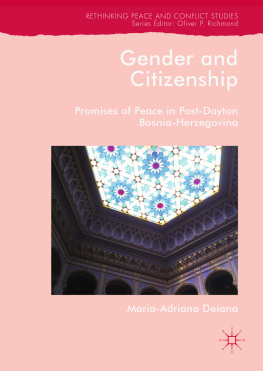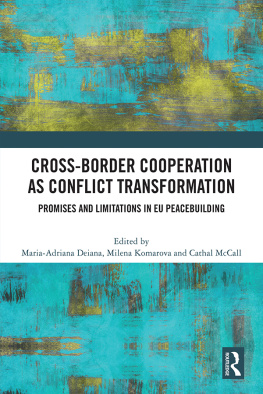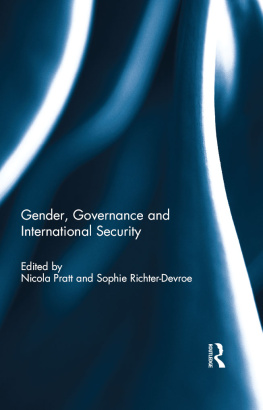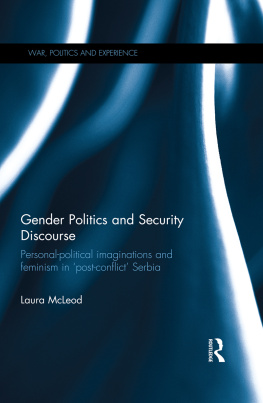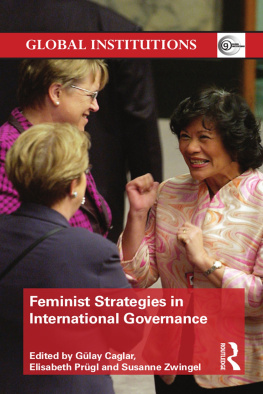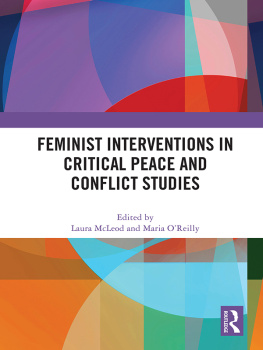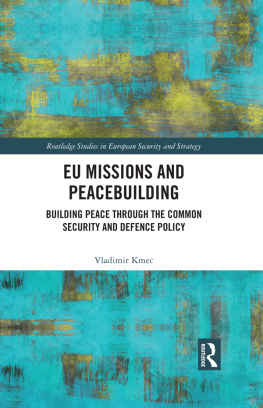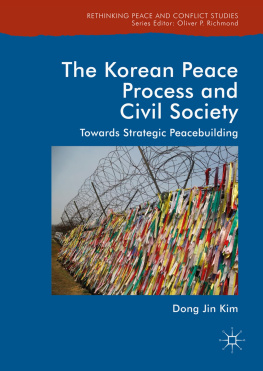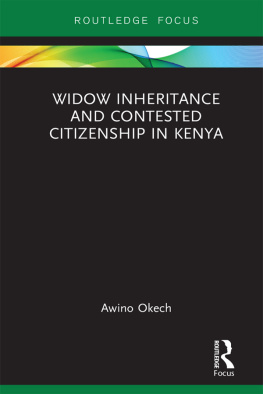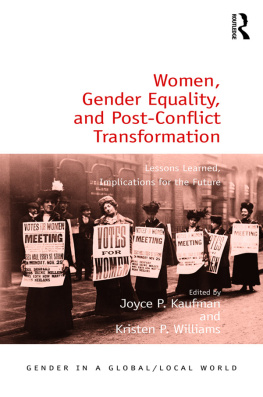1. Revisiting Dayton: Unfinished (Feminist) International Relations
In February 2014 citizens protests were being held in the streets of Sarajevo and other cities in Bosnia, such as Tuzla, Mostar, and Zenica. Together with other episodes of popular upheaval in 2012 and 2013, the protests had seen unprecedented popular mobilization since the end of the war. The mobilization involved the organization of citizens assemblies , plenums, as instruments of radical democracy. Another event coincided with the protests in Sarajevo. Under the auspices of the Womans International League for Peace and Freedom (WILPF), women activists from Syria travelled to Sarajevo as prospects about a second round of UN led peace talks with the Assad government emerged. WILPF was keen to lobby the UN for the inclusion of womens groups in the negotiation process and to bring activists together to strategize (Rees ). They shared anger and frustration at how the peace process had worked to entrench the power of ethno-nationalist elites through a highly complex system of multi-level governance and group rights provisions that marked ethnicity as the all-encompassing dimensions of post-conflict and post-agreement politics, at the expense of addressing living conditions and social justice. A sign held by young protesters stating Glasni smo na tri jesika We are hungry in three languages perfectly encompasses the distrust and discontent of Bosnian citizens. While successful in ending the war, the internationally brokered consociational agreement has impoverished local citizens, both politically and materially, creating a highly complex bureaucratic system removed from everyday needs in the name of protecting ethnic groups rights.
Contrary to mainstream narratives that view the Dayton model as a success story of conflict resolution which could be replicated in other conflict scenarios, this book shares the concerns expressed by local Bosnians and log-time observers on the darker implications of Daytons promises of peace. Critical interventions have long spotlighted the pitfalls of international intervention in Bosnia-Herzegovina (Paris ). A deeper critical intervention on Daytons afterlives calls into question not only international responsibility in creating and exacerbating the very problems post-conflict solutions had sought to address, but also the reverberations of these failures into citizens lived experiences.
In this book I develop a critical engagement with Daytons aftereffects through feminist lenses by foregrounding womens experiences in navigating the pernicious interaction between the unintended consequences of Daytons consociational regime and the gendered exclusions reproduced in various stages of the peace process . Since the signing of UN Security Council Resolution 1325 in 2000 (UNSCR1325), the articulation of gender concerns in the context of international peacebuilding and peacemaking has been framed in relation to the development of the Women, Peace and Security Agenda (WPS) . Comprised of UNSCR1325 and its sister resolutions, the agenda marks international commitment to mainstreaming gender in all aspects of security, conflict management and peacebuilding. ).
This book foregrounds Bosnia-Herzegovina as a specific site of tension between the commitment for transformation and inclusions set out in WPS and the post-conflict consociational settlement. It argues that by entrenching ethnonationalism as the dominant political discourse, consociational formulas work to side-line gender dynamics of conflict and conflict transformation. A central argument of this book is that Bosnias dysfunctional and ambivalent peace matters not only in its ethnicized consequences, but also because of its attendant gendered exclusions , implicitly enabled by the Agreements consociational provisions and its afterlives. At the same time, I suggest that focusing on the consociational formula alone is not sufficient to capture the historical, political, societal and personal dynamics shaping womens experiences Post-Dayton . The book thus wishes to make a contribution to existing debates on the uneasy relationship between the principles of WPS and consociationalism by following a less explored trajectory that allows to capture a broader set of processes beyond the power-sharing provisions . Drawing on feminist theoretical reformulations of citizenship this study develops a critical framework to examine the interaction between the unintended consequences and failed promises of the peace agreement and womens lived experiences in the context of so called peace. The notion of citizenship employed in this book place an emphasis on multiple and overlapping senses of belonging , on questions of attachment (Roseneil ) and grapples with possibilities for collective action and transversal politics (Yuval-Davis). In doing so this book deploys a multi-dimensional approach that spotlights women as key protagonists as they negotiate their positioning vis--vis (post)conflict legacies and make sense of Daytons incomplete peace.
Foregrounding womens experiences I wish to build on and develop existing critical literature on the replication of ethnicized and gendered exclusions in power-sharing institutions (Byrne and McCulloch ).
In this introductory chapter, I begin by highlighting the complex gendered dynamics refracted through Bosnia-Herzegovinas post-conflict context. In so doing I draw upon feminist work that reveal the post-conflict moment as an ambivalent site of analysis shaped by contradictory dynamics maneuvering for political transformation, as well as for the re-constitutions of gendered hierarchies , insecurities and male networks of power (Cockburn and arkov ). I employ narrative methods to foreground the experiences, sensations and perspectives of the women who contributed to this project.
Gendered Continuities and Ruptures in the Post-conflict Moment
Feminist scholarship complicates any linear and straightforward assumptions of post-conflict as the moment where combatants have stopped the fighting and the violence is allegedly over (Cockburn and arkov ). These include gendered insecurities , increase in domestic violence , human trafficking, poverty, prostitution. Post-conflict processes often construe women as passive subjects, as either victims, refugees, or accord women conditional agency subordinated to the collective. Yet, as moments of social and political upheaval I also view (post)conflict situations as opportunities that offer spaces for womens agency through activism , peace initiatives, work with international institutions and NGOs etc.
Such complex gendered dynamics are salient in the context of post-conflict /post-agreement Bosnia-Herzegovina. Feminist scholars and activists alike have drawn attention to the centrality of gender in the interlinked phenomena of nationalism and militarism that led to the outbreak of conflict and to womens complex positioning in the war and its aftermath (Cockburn and arkov ) temporarily bring Post-Dayton Bosnia back to political attention as a reminder of the complexities and persisting challenges in addressing gender dynamics in the context of armed conflict, peace and security.
This book insists that, two decades after the signing of the Dayton Peace Agreement (DPA) , Bosnias unfulfilled peace matters for feminist engagements with peace and security, as well as international relations at large. Despite the complex gender dynamics highlighted in the emergence of violent nationalism and the successive years of conflict, the peace negotiations failed to include gender as key dimension for addressing the legacy of the Bosnian war and building sustainable peace (Lithander ).

